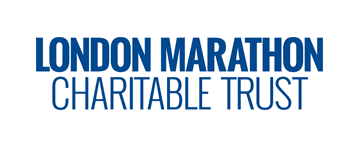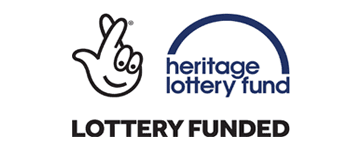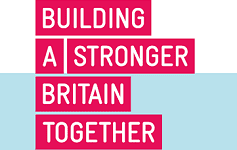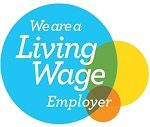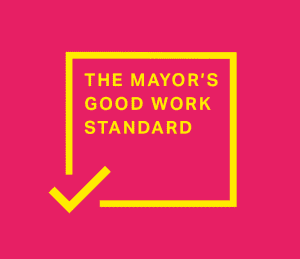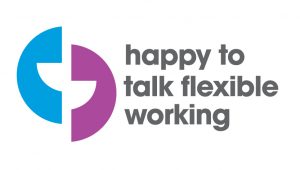Investigating young people’s emotional support needs and experiences in the context of the cost of living crisis
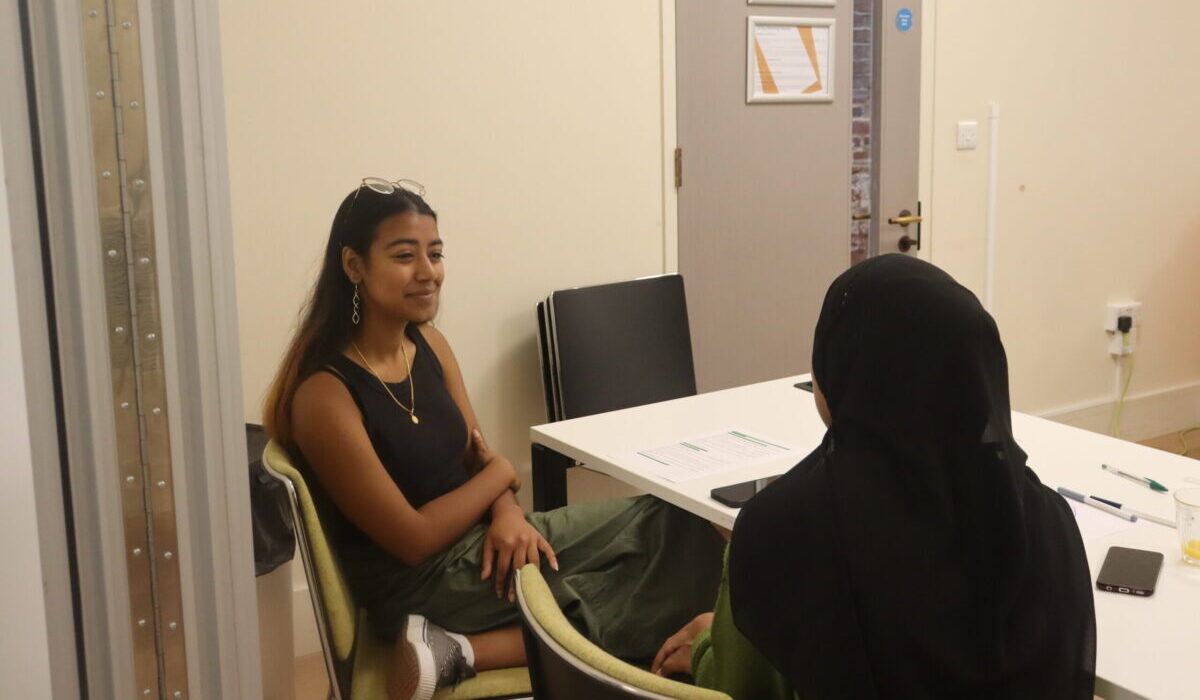
Early findings and solutions from the Emotional Support for Young People Peer Research Project.
Toynbee Hall, in partnership with Thrive LDN and a group of young peer researchers, all residents of Tower Hamlets aged 16-22, have been investigating young people’s emotional support needs and experiences in the context of the cost of living crisis.
The project is also exploring the impact of increased living costs on the relationships between young Londoners and their families.
Emotional support for young people
In the research phase of this project, young researchers completed interviews, and designed and led a series of workshops. They found that young participants, all Tower Hamlets residents aged 16-22, turn to either close family or friends for different types of emotional support depending on a range of factors.
They discussed what works well for them, what barriers are preventing them from getting the emotional support they need, and the impact the cost of living crisis is having on all of these.
They found that:
- Those who feel better supported tend to feel able to turn to a mix of close family, wider family, and friends.
- They value having people to turn to who they spend time with regularly, who will listen without judgement, and who will have some understanding about their social context.
- Most feel that family should have a key role in providing emotional support. Young people however face multiple communication barriers to having these conversations with family members, especially with parents.
- Those less likely to turn to parents worry that the way their parents might choose to communicate with them might make the situation worse.
- Participants who feel able to turn to family members who will focus on listening to understand – rather than jumping straight to giving advice – find this particularly supportive.
- Generational gaps between young people and their parents’ understanding of mental health, as well as young people’s social worlds and the particular pressures they face, are also a barrier to receiving effective emotional support.
- Friends play an important and unique role in providing emotional support. Those unable to turn to friends for emotional support really notice this gap and want there to be more opportunities for young people in the borough to make new friends.
If I need something, if I need money, in that aspect [Mum] can give me support, but emotional-wise, I feel like she doesn’t have the knowledge to give sort of support […] she just doesn’t know who to like go about it. She doesn’t have the resources to.”
Workshop participant
- Culturally specific communication barriers were also identified for families from Bangladeshi backgrounds. These participants cite stigma around mental health among their parents, language barriers, and the lack of resources and time that first generation immigrants have available to them.
- For participants who feel less able to turn to family and friends, the role of services in filling that gap is vital. This includes therapists, school support staff and helplines.
Impact of the cost of living
Young people are finding it harder to spend quality time with close family members and friends as a result of the cost of living crisis. This is due to a range of factors including:
- Family members are having to take extra shifts at work and participants and their friends and families having less money to do activities or go on outings together.
- The crisis is also creating or worsening financial barriers to seeing family and friends linked to travel costs, while also making it harder to do activities that are good for wellbeing – such as gym or playing sport with friends.
- Participants are seeing or experiencing more stress in family relationships due to the knock on impacts of the cost of living crisis. This ranges from conflict with siblings or parents or visible strain on parental relationships.
- Young people at certain ages are concerned about losing access to subsidised travel and, as a result, not being able to do things that are good for their emotional wellbeing.
- Some link their experiences of the cost of living crisis to living overcrowded housing as space to re-charge at home is difficult to come by and going on outings is less affordable.
[Impact on mum and sister working] they have to work more and they have to work harder just to make enough money. It also affects being comfortable to speak about emotions. Because with cost of living crisis it’s kind of always lingering there in the back of your mind, like ‘can I buy this or that, can I do this or that.”
Workshop participant
- In some cases, the cost of living crisis is leading either to parents pressuring young people to get part time work to support rising costs, or young people putting pressure on themselves when they see their families struggling.
- Participants repeatedly emphasise the importance of wider structural inequalities in driving poor mental health outcomes and impacting the emotional support they can receive above other factors.
Solutions
Each workshop rounded off with a group discussion around solutions that would help improve the emotional support young people are receiving, particularly in the context of the cost of living crisis. Here are some of the solutions they identified:
- Greater access to more enrichment opportunities; opportunities to do activities together with family and community, grow social connections and build knowledge around emotional wellbeing.
- Activities like arts & crafts, games, cooking and sports would relieve stress and help strengthen relationships by establishing trust, encouraging cooperation and building greater understanding between different generations and create an environment where people are more comfortable engaging with topics such as emotional wellbeing and mental health.
- Better employment support for them and their parents would help address some of the structural challenges that impact their emotional wellbeing and emotional support needs. Many are anxious about future work and study, arguing that there are few entry level opportunities in the borough that don’t require previous work experience.
- Opportunities to build career relevant skills – including soft skills – as well as experience they can use on CVs and in applications.
- Career mentoring from young adults a bit further along than them who have shared lived experiences, particularly around growing up in a low-income household in Tower Hamlets.
As this project now enters the Action Phase, the young peer researchers will further develop policy recommendations and actions to turn research into impacts. In the coming months, they will also be working with local partners and steering groups to disseminate project findings and implement recommendations. Find and more about this project here.




